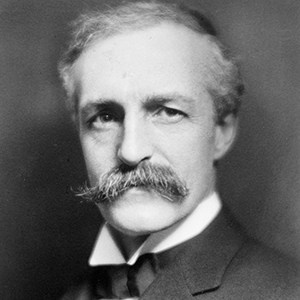Gifford Pinchot was a key figure in the conservation movement of the early 20th Century. He served as Chief Forester of the U. S. Division of Forestry from 1898 to 1910.
Early Life
Gifford Pinchot was born in 1865 to a wealthy Connecticut family. After graduating from Yale University, Pinchot studied at the French National School of Forestry. Upon his return to the United States, Pinchot dedicated himself to the American forestry movement. In 1898, Pinchot was named chief of the U.S. Department of Agriculture’s Division of Forestry.
Chief Forester
When his good friend Theodore Roosevelt became President, Pinchot was appointed the the newly-created position of Chief Forester of the U. S. Division of Forestry. He served from 1898 to 1910. During the Roosevelt Administration, more than 200 million acres of national forest came under scientific land management. His policies, which advocated the controlled, profitable use of natural resources so they would provide the maximum benefit to mankind, became a model for conservation.
Of Pinchot’s service to the Administration, Roosevelt wrote: “Among the many, many public officials who under my administration rendered literally invaluable service to the people of the United States, Gifford Pinchot on the whole, stood first.”
Political Career
In the Taft Administration, Pinchot was fired as the head of the Forest Service for criticizing Richard Ballinger, Secretary of the Interior, for favoring big business over conservationism. The controversy that led to Pinchot’s termination was one of the factors that created the split in the Republican Party and the formation of the Progressive Party.
In 1922, Pinchot was elected Governor of Pennsylvania. He served from 1923 to 1927, and again from 1931 to 1935. In the office, Pinchot worked to enforce Prohibition, regulate public utilities, and provide relief to the unemployed. During World War II, Pinchot invented a water gathering device and fishing kits for use in navy life boats. He died in 1946.









